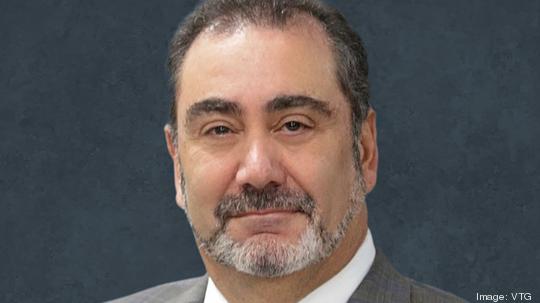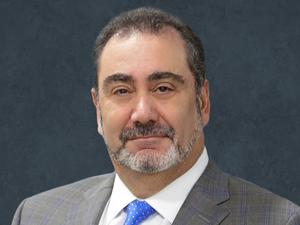
VTG has made another acquisition, buying ASSETT Inc. of Manassas in a deal announced Wednesday.
The acquisition brings Chantilly's VTG a company with AI and machine learning experience in the unmanned undersea vehicle area, and follows its purchase of Intelligent Shift LLC in January. Terms of the ASSETT acquisition were not disclosed.
This latest buy aligns with the company’s strategic focus of procuring emerging technology applications that will serve the defense sector, said VTG President and CEO John Hassoun.
“We said were going to do this, specifically, not just creating size for the sake of creating size, but really focusing on specific technology areas that we believe our clients are interested in buying and building on top of,” Hassoun said in a phone call with the Washington Business Journal.
VTG has focused on areas like command, control, computers, communications, cyber, intelligence, surveillance and reconnaissance (C5ISR); information technology modernization; and innovative defense platforms.
ASSETT, which stands for Advanced Systems Supportability Engineering Technologies and Tools, cuts across at least a couple of these focus areas, but also infuses intelligent technology into naval operations.
The Manassas company, stood up in 2001 by four founders who had worked on submarine combat system development at IBM Federal Systems, provides open and modular technology architectures for the Navy and specializes in areas such as improved Velocity Sensing Sonar (VSSi) design, integrated bridge systems with automated command and control features for submersibles and other aspects of naval engineering.
But it was ASSETT’s work on unmanned undersea technology, particularly its focus on artificial intelligence, machine learning and cybersecurity, that drew VTG’s eye, Hassoun said.
Because the U.S. is now in a near-peer competition with rivals such as China and Russia for next-generation defense weapon platforms, Hassoun said ASSETT’s work on AI-enabled autonomous naval systems will help VTG meet its goal of building a software-based digital transformation portfolio across air, sea, land and space operations.
“The one area that we said that’s also critical to our strategy is unmanned undersea warfare systems and capabilities,” he said. “We’ve been looking at ASSETT for about a year-and-a-half or two. We’ve been very happy to report that what they have been able to accomplish since their founding in 2001 and more recently working with [Naval Sea Systems Command] and then some of the Special Operations Command organizations in unmanned undersea warfare systems has been incredible.”
Hassoun said the company is also hoping to scale the AI and machine learning algorithms developed by ASSETT and apply them to other parts of its portfolio, which include work on directed energy and hypersonic weapons platforms, as well as intelligence work that was bolstered by the Intelligent Shift buy.
VTG's acquisition will bring about 50 ASSETT employees into its fold, mostly engineers and scientists who possess coveted security clearances, some even at top-secret levels.
Those additions will push VTG close to a 1,500-person workforce, and Hassoun said it will also help the company reach its target of $250 million in annual revenue.
The CEO said VTG will retain ASSETT’s offices and secure software development facilities to help field what’s expected to be an expanding slate of work.
As for VTG's potential future in mergers and acquisitions, Hassoun said the company is not yet done.
“We’ll keep looking for some of these special capabilities. Obviously, I’d love to keep expanding unmanned undersea warfare," Hassoun said. "I’d love to continue to expand directed energy, digital transformation, software development, software engineering, data science AI and ML. Those are the focus of whatever we’ll be looking at from an acquisition standpoint over the next two to three years.”


